Emerald mother Shontell Falconer sues Mackay Hospital and Health Service for $1.33m
When her daughter was just one day old, a Queensland mother had to make the gut-wrenching decision to switch off her life support. Now she is suing a regional hospital over the death.
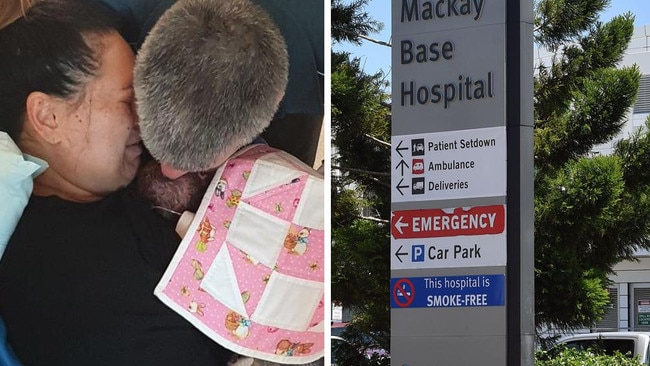
Mackay
Don't miss out on the headlines from Mackay. Followed categories will be added to My News.
A grieving mother forced to make the traumatic decision to turn off her newborn daughter’s life support has filed a $1.3m negligence lawsuit over her baby’s death.
Emerald mother Shontell Falconer is suffering.
Her daughter Rahni Falconer was just one day old when the 42 year old and her husband Stuart decided to turn off her baby’s life support. She died in her mother’s heartbroken arms.
Now she suffers post traumatic stress disorder, major depressive disorder and major depressive episodes and anxiety and prolonged grief disorder.
Little Rahni was one of three babies who died allegedly because of inadequate care at Mackay Base Hospital’s obstetric and gynaecology unit – a review into the death revealed Shontell was not properly monitored despite being identified as a very high risk pregnancy.
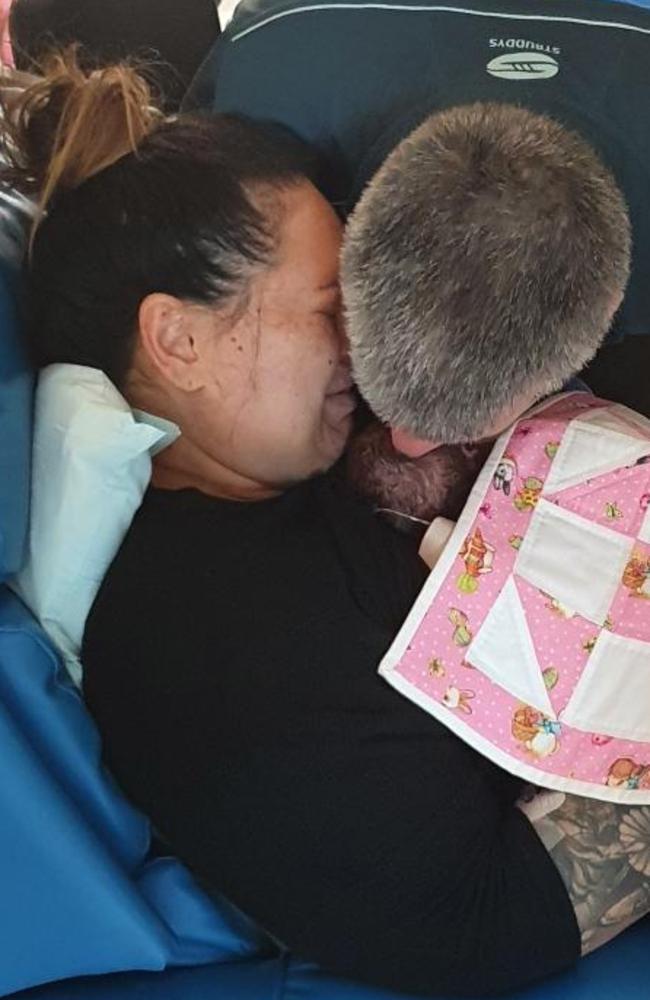
A shocking report released in 2022 highlighted “system level failures” at the hospital, which lost its accreditation to train doctors in obstetrics and gynaecology for a time. This suspension has since been lifted.
Mrs Falconer has filed a negligence claim in the supreme court against Mackay Hospital and Health Service totalling $1,334,619 in damages, plus costs and interests.
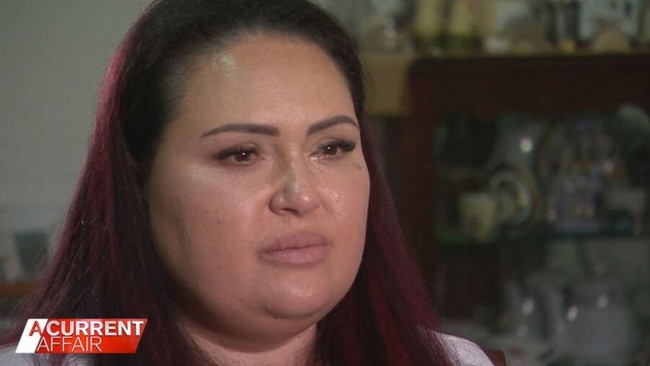
She has alleged the health service is “vicariously liable for the acts and/or omissions of health workers at the hospital.
Mrs Falconer had been 30 weeks pregnant with her third child when her antenatal care at Emerald Hospital was transferred to Mackay Base Hospital in July 2020 because of her increasing blood pressure, after she had been diagnosed with pre-eclampsia and gestational diabetes in February, the claim stated.
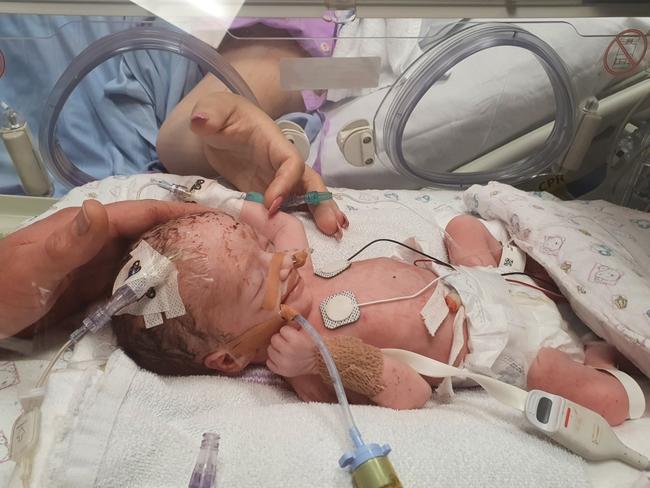
On August 3 doctors increased her dosage of labetalol from 300mg to 400mg per day to treat hypertension, and the following day she returned to the hospital “reporting decreased foetal movement since lunchtime”.
About 6.45pm a cardiotocography revealed “reduced variability”, Ms Falconer was given hydralazine and the first dose of corticosteroids and continued on an electric foetal monitor, which a health worker reviewed and “stated that he would conduct (a) further review later”.
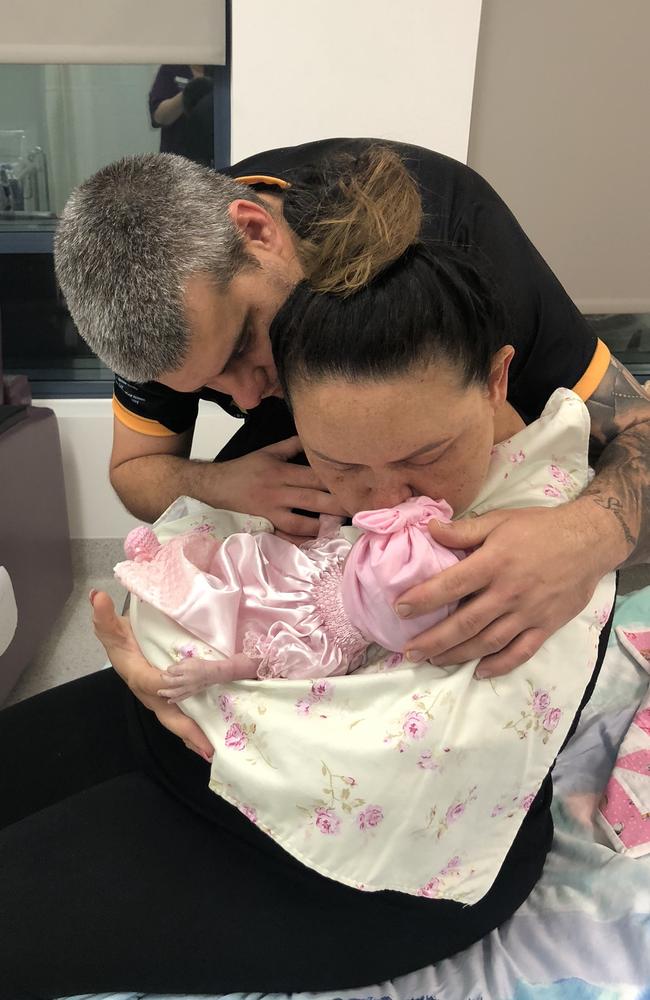
At 8.30pm an ultrasound detected no movements in the infant and about three hours later Ms Falconer underwent emergency caesarean.
Rahni was born at 12.03am, August 5 and had severe hypoxic ischemic encephalopathy because of perinatal asphyxia, weighed just 1500g and had anaemia, seizures and hypoglycaemia. She died at 1.29pm on August 6.
Ms Falconer has alleged the hospital failed in numerous ways including properly or adequately interpreting or heeding the significance of the cardiotocography results on August 4 and failed to organise and/or carry out an urgent caesarean that day.
She further alleges the health service failed to carry out an urgent caesarean within a reasonable time and demonstrated inadequate monitoring from senior clinicians managing a high risk pregnancy.
Mrs Falconer further claims the hospital failed to obey its own processes regarding category one caesarean sections causing a delay of more than one hour following the decision for an emergency category one caesarean to birth of neonate with feto-maternal bleed.
She has alleged she has endured and continues to endure pain, suffering, inconvenience and loss of enjoyment of the amenities of life.
This publication had contacted Mackay Hospital and Health Service for comment.
A Queensland Health spokeswoman said Mackay HHS was unable to provide any comment at this time as the matter was subject to investigation by the coroner and other legal processes.





